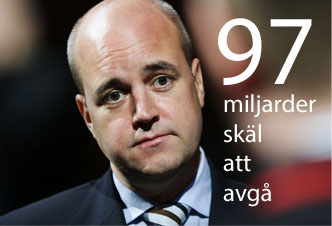I am Bradley Manning!
I
KATEGORI:Internet
I
KATEGORI:Internet
D

KATEGORI:Allmänt
E

KATEGORI:Inrikespolitik
D

KATEGORI:Ekonomi
D
"The big question is whether Detroit’s bankruptcy and likely further decline is a fluke or whether it tells us something about the dystopia that the United States is becoming. It seems to me that the city’s problems are the difficulties of the country as a whole, especially the issues of deindustrialization, robotification, structural unemployment, the rise of the 1% in gated communities, and the racial divide. The mayor has called on families living in the largely depopulated west of the city to come in toward the center, so that they can be taken care of. It struck me as post-apocalyptic. Sometimes the abandoned neighborhoods accidentally catch fire, and 30 buildings will abruptly go up in smoke.
Detroit had nearly 2 million inhabitants in its heyday, in the 1950s. When I moved to southeast Michigan in 1984, the city still had over a million. I remember that at the time of the 1990 census, its leaders were eager to keep the status of a million-person city, since there were extra Federal monies for an urban area of that size, and they counted absolutely everyone they could find. They just barely pulled it off. But in 2000 the city fell below a million. In 2010 it was 714,000 or so. Google thinks it is now 706,000. There is no reason to believe that it won’t shrink on down to almost nothing.
The foremost historian of modern Detroit, Thomas J. Sugrue, has explained the city’s decline. First of all, Detroit grew from 400,000 to 1.84 million from 1910-1950 primarily because of the auto industry and the other industries that fed it (machine tools, spare parts, services, etc.) From 1950 until now, two big things happened to ruin the city with regard to industry. The first was robotification. The automation of many processes in the factories led to fewer workers being needed, and produced unemployment. (It was a trick industrial capitalism played on the African-Americans who flocked to Detroit in the 1940s to escape being sharecroppers in Georgia and elsewhere in the deep South, that by the time they got settled the jobs were beginning to disappear). Then, the auto industry began locating elsewhere, along with its support industries, to save money on labor or production costs or to escape regulation.
The refusal of the white population to allow African-American immigrants to integrate produced a strong racial divide and guaranteed inadequate housing and schools to the latter. Throughout the late 1950s and the 1960s, you had substantial white flight, of which the emigration from the city after the 1967 riots was a continuation. The white middle and business classes took their wealth with them to the suburbs, and so hurt the city’s tax base. That decrease in income came on top of the migration of factories. The fewer taxes the city brought in, the worse its services became, and the more people fled. The black middle class began departing in the 1980s and now is mostly gone.
Other observers have suggested other concomitants of the decline, like poor city planning or the inability to attract foreign immigrants in sufficient numbers. I suspect that the decline of Detroit as a port is important somehow to the story (only one of the four old locks at Sault St. Marie lets big ships come down to the lower Great Lakes and therefore to Detroit any more. A new, big [pdf] modern lock is being built to accommodate larger vessels, but it will be a decade before it opens. Some observers point out that Detroit would make sense as a Midwest hub port for international shipping containers if its harbor was expanded and linked by rail to the cities of the region, but I suspect the new lock at the Soo is a prerequisite.
After all these decades of dashed hopes, it is hard for me to take too seriously any assertions that the city is about to turn the corner or that some renewal project is about to succeed. At this point it seems to me a question of whether you retain some of the population that will otherwise leave. I find particularly unlikely the idea that urban farming is part of the solution. It sounds cute, but farmers don’t make nearly as much money as urban industrial workers, which is why they mostly went to the cities. You can’t put money into a city that way.
While other cities have avoided Detroit’s extreme fate, I think the nation as a whole faces some of the intractable problems that the city does, and I don’t think we have a solution for them.
Take robots (and I really just mean highly mechanized and computerized production of commodities). More and more factory work is automated, and advances in computer technology could well make it possible to substantially increase productivity. This rise of the robots violates the deal that the capitalists made with American consumers after the great Depression, which is that they would provide people with well-paying jobs and the workers in turn would buy the commodities the factories produced, in a cycle of consumerism. If the goods can be produced without many workers, and if the workers then end up suffering long-term unemployment (as Detroit does), then who will buy the consumer goods? Capitalism can survive one Detroit, but what if we are heading toward having quite a few of them?
It seems to me that we need to abandon capitalism as production becomes detached from human labor. I think all robot labor should be nationalized and put in the public sector, and all citizens should receive a basic stipend from it. Then, if robots make an automobile, the profits will not go solely to a corporation that owns the robots, but rather to all the citizens. It wouldn’t be practical anyway for the robots to be making things for unemployed, penniless humans. Perhaps we need a 21st century version of ‘from all according to their abilities, to all according to their needs.’
Communally-owned mechanized/ computerized forms of production would also help resolve the problem of increasing income inequality in the United States. The top 1% is now taking home 20% of the national income each month, up from 10% a few decades ago. The 1% did a special number on southeast Michigan with its derivatives and unregulated mortgage markets; the 2008 crash hit the region hard, and it had already been being hit hard. The Detroit area is a prime example of the blight that comes from having extreme wealth (Bloomfield Hills, Grosse Pointe) and extreme poverty (most of Detroit) co-existing in an urban metropolitan area. It doesn’t work. The wealthy have no city to play in, and the city does not have the ability to tax or benefit from the local wealthy in the suburbs. These problems are exacerbated by de facto racial segregation, such that African-Americans are many times more likely to be unemployed than are whites, and to live in urban blight rather than in nice suburbs.
The crisis of capitalism is being delayed in part because of the rise of Asia and the emergence of new consumer markets in places with rapidly growing populations. American corporations have relocated to those places with increasing numbers of people and cheap labor, leaving working communities like Detroiters abandoned and idle. US companies are making goods in Vietnam to sell to middle class Chinese and Indians. But the world population will level off in 2050 and probably will decline thereafter. At that point, consumerism will have reached its limits, since there will be fewer consumers every year thereafter. (There is also the problem that classical 1940s and 1950s consumerism is environmentally unsustainable).
With robot labor, cheap wind and solar power, and a shrinking global population, post-2050 human beings could have universally high standards of living. They could put their energies into software creation, biotech, and artistic creativity, which are all sustainable. The stipend generated by robot labor would be a basic income for everyone, but they’d all be free to see if they could generate further income from entrepreneurship or creativity. And that everyone had a basic level of income would ensure that there were buyers for the extra goods or services. This future will depend on something like robot communalism, and an abandonment of racism, so that all members of the commune are equal and integrated into new, sustainable urban spaces.
Insisting on a 19th century political economy like barracuda capitalism in the face of the rise of mechanized smart labor and the decline of human-based industry produces Detroit. Racial segregation and prejudice produces Detroit. Shrinking and starving government and cutting services while forcing workers to work for ever shrinking wages (or even forcing them out of the labor market altogether) produces Detroit. In essence, Detroit is the natural outgrowth of the main principles of today’s Tea Party-dominated Republican Party. It doesn’t work, and isn’t the future.
The future is not Detroit or today’s GOP-dominated state legislature in Lansing. It is Something Else. Michigan’s slow, painful decline is trying to tell us something, that robots, race and unhealthy forms of globalization are death to cities under robber baron rules. We need new rules."
KATEGORI:Ekonomi
I

KATEGORI:EU-politik
A

"At the time, more than 100 teams of US analysts were scouring Iraq for snippets of electronic data that might lead to the bomb-makers and their hidden factories. But the NSA director, Gen. Keith B. Alexander, wanted more than mere snippets. He wanted everything: Every Iraqi text message, phone call and e-mail that could be vacuumed up by the agency's powerful computers.
"'Rather than look for a single needle in the haystack, his approach was, 'Let's collect the whole haystack,' said one former senior US intelligence official who tracked the plan's implementation. 'Collect it all, tag it, store it. . . . And whatever it is you want, you go searching for it. . . . .

KATEGORI:Internet
J
"The proportion of hours during which electricity traded at less than 30 euros ($39) a megawatt-hour, the level at which UBS AG says reactors start losing money, rose to 50 percent last month, the most since 2007 and 92 percent more than a year ago, data from the Epex Spot SE exchange show. RWE AG (RWE) cut output at its Gundremmingen plant near Munich 31 times in the first half as solar and wind output jumped, compared with 18 times in 2012, according to data compiled by Bloomberg.
The reductions, which typically last for hours at a time, underscore how Chancellor Angela Merkel’s plan to replace atomic power with renewable energy within a decade is gaining ground at the expense of profit at utilities from RWE to EON SE. The boom in green power, coupled with the lowest demand in 10 years, sent the average operating margin at 15 European utilities to the lowest since 2002, company data compiled by Bloomberg show.
“We will see more of those situations where renewable output is so high, that spot prices collapse below the level of the cash costs for nuclear plants,” Patrick Hummel, an analyst at UBS in Zurich, said July 2 by e-mail."
Det var efter kärkfkraftolyckan i Fukushima som Tyskland bestämde sig för att ställa om sitt energisystem och fasa ut kärnkraften. Något som vi också diskuterat i Sverige i många år, med skillnaden att våra svenska högerpolitiker - liberale Jan Björklund framför allt - får allergiska utslag av blotta tanken på sol- och vindkraft. Det omöjliga i att ställa om vårt energisystem till förnyelsebart och grönt har trummats in i den svenska debatten så länge av industrin, borgerligheten och en hel del sossar att alla som är av en annan åsikt framstått som flummare som vill tillbaks till jordkulorna. Och sen går Tysklands högerregering och gör precis det som den svenska högern menat är omöjligt: ställer om till förnyelsebart och grönt! Idag hämtar landet 22 procent av sin energi från förnyelsebara källor och målet som Angela Merkel satt upp är siffran ska vara 35 procent 2020.
Den som rest i Tyskland på senare år kan inte ha missat skiftet. På var och varannat tak sitter solpaneler och de stora vindkvarnarna maler på horisonten. Det är en småskalig energirevolution som nu hotar att konkurrera ut de stora monsterkraftverken. Men inte tack vare våra svenska energiföretag som tävlar på den tyska elmarknaden med smutsig kolkraft och kärnkraft - behöver jag nämna Vattenfall och Nuon?

"It doesn't seem to me at this point to be a point of serious controversy within the corporate establishment," said Paul Barrett a Bloomberg BusinessWeek reporter (Bloomberg BusinessWeek's sister company Bloomberg News is a CNBC competitor). "The insurance industry, which is a key barometer of these things, has reached the conclusion that whatever your politics are on this, the costs of extreme weather are so great and the patterns over the last couple of decades are so distinct that the corporate establishment absolutely must recognize these risks."
Barrett added, "It's past the point of letting ideology shape the dollars-and-cents calculations that businesses are already making, it is not a question of whether business should do this, business is doing this."
Michael Hiltzik, a veteran Los Angeles Times business columnist, agreed.
"I accept the evidence of climate change," he said. "I don't think I've ever run into a legitimate business leader or business owner in the course of my reporting who doesn't. I think, for the most part, it is settled science and the debate is really over what to do about it."
Hiltzik and others stressed that in business reporting, information is so vital to those running large and small companies that facts have to be on point and disregard political calculations.
"There is no percentage in denying it, there's no point. You can't hold back the tide," Hiltzik said. "It seems to me that denial is basically a political position, it's not a practical position, especially for a business that is in an industry that is going to be impacted by climate change."
KATEGORI:Global uppvärmning
A
"Capio S:t Görans sjukhus nekar att ge hjärt-patienter intensivvård efter operation – om de inte får betalt för det. Följden blir att hjärtsjuka patienter inte får operation i tid, och rentav avlider av det, enligt överläkare på Karolinska universitetssjukhuset.
En patient som hade en planerad tid för en hjärtoperation på Karolinska universitetssjukhuset i Solna skickades nyligen hem igen med beskedet att operation inte kunde ske förrän i höst.
– Under den tiden är risken stor att patientens tillstånd försämras, säger Helmuth Lang, överläkare vid Thoraxkliniken på, Karolinska.
Karolinskas hjärtkirurgi, som tar emot runt tusen hjärtpatienter per år, har vad Helmuth Lang kallar en ”het lista” av brådskande fall, där hot om hjärtinfarkt föreligger. Här får personal prioritera vilka patienter som först bokas in för operation. Något som alltid är ett risktagande, enligt Helmuth Lang.
– Det händer att patienter avlider för att de får vänta för länge på en operation på grund av brist på vårdplatser, säger han.
Skälet till att patienten i fråga gick miste om sin inplanerade operation är att operationsplatser på Karolinska upptas av patienter som redan opererats. Det första dygnet efter en hjärtoperation behöver alla patienter eftervård, och får det på plats. Men en del av dem behöver en längre tids intensivvård efteråt. De har kanske drabbats av lunginflammation, hjärtsvikt eller behöver förlängd behandling i res-pirator.
Sjukhus som en gång utrett patienter tar i regel tillbaka dem efter att de sänts för operation på Karolinska.
– Men Capio räknar det som ett nytt vårdtillfälle och nekar till att ta tillbaka patienterna om de inte får betalt för det, säger Helmuth Lang."

En till stolt dag för privatiseringsförespråkarna? Att införa marknadsekonomiska styrmekanismer i sjukvården fick precis den effekt man kunde vänta sig. Ekonomin blev viktigare än patienterna. Som Helmuth Lang, överläkare på Karolinska säger:
"Ekonomiska kalkyler ska lyftas bort från verkstadsgolvet. I stället är det käbbel om ekonomin som styr i det ögonblick vi står där och ska avgöra patientens öde."
Idag skriver också SvD om hur vård- och omsorgskapitalisterna fortsätter att växa:
"Omsättningen i fem av de största välfärdsföretagen – Capio, Praktikertjänst, Academedia, Attendo och Humana – steg med cirka fyra miljarder kronor i fjol, från 31 till 35 miljarder kronor, visar TT:s genomgång av de årsredovisningar som har kommit för 2012.
De fem bolagen redovisar rörelsevinster som motsvarar i genomsnitt cirka sex procent av omsättningen, jämfört med cirka sju procent året innan. Tre andra välfärdsjättar har ännu inte släppt sina årsredovisningar för 2012: Carema, Aleris och Frösunda."
Vårdkapitalisternas språkrör tillika folkpartisten Håkan Tenelius menar i artikeln att hårdare kvalitetskrav på verksamheterna gör att små företag slås ut och bjässarna växer. Men den utvecklingen har varit konstant sedan privatiseringsvansinnet började. Om något visar väl hans resonemang hur orimligt det är med vinstintresse i välfärdssektorn. Om vi inte kan ställa kvalitetskrav på verksamheterna utan att för den skull accelerera den redan pågående utslagningen av de mindre företagen drivna av eldsjälar som sägs vara de som vi vill gynna, vad är det då för Frankeinsteins monster privatiseringstalibanerna skapat? Ett system där vi inte vågar ställa kvalitetskrav på företagen för att det snedvrider konkurrensen? Vill vi ha den typen av marknadsmekanismer i verksamheter som tar hand om sjuka, gamla och barn?
Uppdatering: Idag skriver en sjuksköterska på Aftonbladet Debatt om sina egna erfarenheter av den misshandlade sjukvården. Läs:
"Svensk sjukvård blöder våldsamt. Vi har ett allvarligt systemfel som skördar sina offer i form av patienter och personal. Marknadskrafterna rimmar illa med etik, moral, kärlek och god omsorg. Sjuksköterskorna är fullständigt utmattade. Åratal av vinande med sparpiskan, organisationer där man tystas och skuldbeläggs har skapat en miljö där det inte finns plats för värdighet. Hänsynslöst utnyttjande av kvinnors lojalitet och samvete för sina patienter har nu nått vägs ände."
SvD 1, 2, 3, AB 1, 2, 3, 4, 5,
KATEGORI:Privatiseringar
S

KATEGORI:Privatiseringar
D
"Senior EU diplomats, officials, and government ministers confirmed that Britain opposed most of the rest of the EU on joint European talks with the Americans on intelligence and espionage, meaning that national governments will need to pursue the issues separately with Washington.
"The consultations in Washington will first of all address data protection matters. Addressing the intelligence topic is not expected," said a senior Lithuanian official.
The Lithuanian government phoned Carl Bildt, Sweden's foreign minister, on Thursday evening to try to remove the Swedish resistance, but failed, sources said. The talks in Brussels continued throughout the night as diplomats sought to come up with wording that would keep everyone happy."
Vår svenska USA-vänliga högerregering med utrikesminister Carl Bildt - som i sin ungdom samarbetade med CIA och fick 100 000 kronor av dem - har alltså tillsammans med den lika USA-vänliga brittiska högerregeringen urvattnat den europeiska reaktionen på avlyssningsskandalen. Återigen ett exempel på hur regeringen Reinfeldt saboterar ett bra initiativ från EU. Gudarna ska veta att dom bra initiativen från det hållet inte duggar tätt.
Tidigare har vi sett Sverige agera på samma sätt när det gällde Tobinskatten på finansspekulation, ett förslag om stopp på telekommunikationsutrustning till Assads Syrien och ett annat förslag om att tvinga EU-länderna att satsa mer på förnyelsebart och minska energianvändningen. (Det var "alliansens gröna röst" centern som sänkte det.) Reinfeldts högerregering fortsätteratt leverera det som deras rika donatorer betalat dem för, också på EU-nivå. Att hålla USA om ryggen är viktigare än att skydda de egna medborgarna från spioneri.
Uppdatering: Rick Falkvinge förklarar Sveriges agerande. Vi är genom FRA-lagen helt enkelt en aktiv del i NSAs spioneri mot Ryssland.
SvD 1, 2, 3, 4, 5, 6, 7, DN 1, 2, 3, AB 1, 2, 3,
Bloggat: Nemokrati,
KATEGORI:EU-politik
S

KATEGORI:Privatiseringar
P
KATEGORI:Allmänt